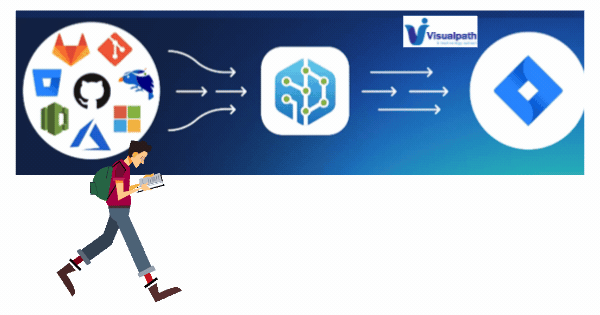What is Git & Why Git In GCP DevOps?
Git is a distributed version control system designed to handle everything from small to very large projects with speed and efficiency. Created by Linus Torvalds in 2005 for the development of the Linux kernel, Git has since become the de facto standard for version control, used by millions of developers worldwide. It allows multiple developers to work on a project simultaneously, tracks changes to files, and facilitates collaboration by enabling branching, merging, and cloning of repositories.
Key Features of Git:
Distributed Nature: Every developer has a local copy of the entire
project history, which allows for offline work and faster access to data.
Branching and Merging: Git makes branching and merging
straightforward, enabling feature development, bug fixes, and experimentation
without affecting the main codebase. GCP DevOps
Online Training
Speed: Git
is designed to be fast, with operations like committing, branching, and merging
taking just seconds.
Integrity: Every change is tracked and can be traced back, ensuring a
complete and unalterable project history. GCP DevOps
Training
Collaboration:
Multiple developers can work on different parts of the project simultaneously
without conflict, thanks to Git’s powerful merging capabilities.
Why Git in GCP DevOps?
In
the context of Google Cloud Platform (GCP) DevOps, Git plays a crucial role in
enabling effective development, deployment, and operational processes. Here are
some reasons why Git is indispensable in GCP DevOps:
GCP DevOps
Training institute in Ameerpet
Continuous Integration and Continuous Deployment (CI/CD): Git
integrates seamlessly with CI/CD pipelines on GCP, enabling automated testing
and deployment processes. Tools like Cloud Build and GitHub Actions can trigger
builds, tests, and deployments based on changes in the Git repository.
GCP DevOps
Training in Ameerpet
Infrastructure as Code (IaC): Using Git, DevOps
teams can manage infrastructure as code with tools like Terraform and Google
Cloud Deployment Manager. This allows for version-controlled, reproducible, and
auditable infrastructure changes.
Collaboration and Code Review: Git
supports collaborative workflows through branching and pull requests,
facilitating peer reviews and improving code quality. Integration with
platforms like GitHub and GitLab enhances this collaborative aspect further. GCP DevOps
Online Training Institute
Disaster Recovery and Rollbacks: With Git, it's
easy to revert to previous states of the codebase, providing a reliable
mechanism for disaster recovery and ensuring system stability.
Visualpath is the Best Software Online Training Institute in
Hyderabad. Avail complete GCP DevOps Online Training worldwide.
You will get the best course at an affordable cost.
Attend
Free Demo
Call on - +91-9989971070.
Visit Blog: https://visualpathblogs.com/
Visit: https://www.visualpath.in/devops-with-gcp-online-training.html

.jpg)


Comments
Post a Comment